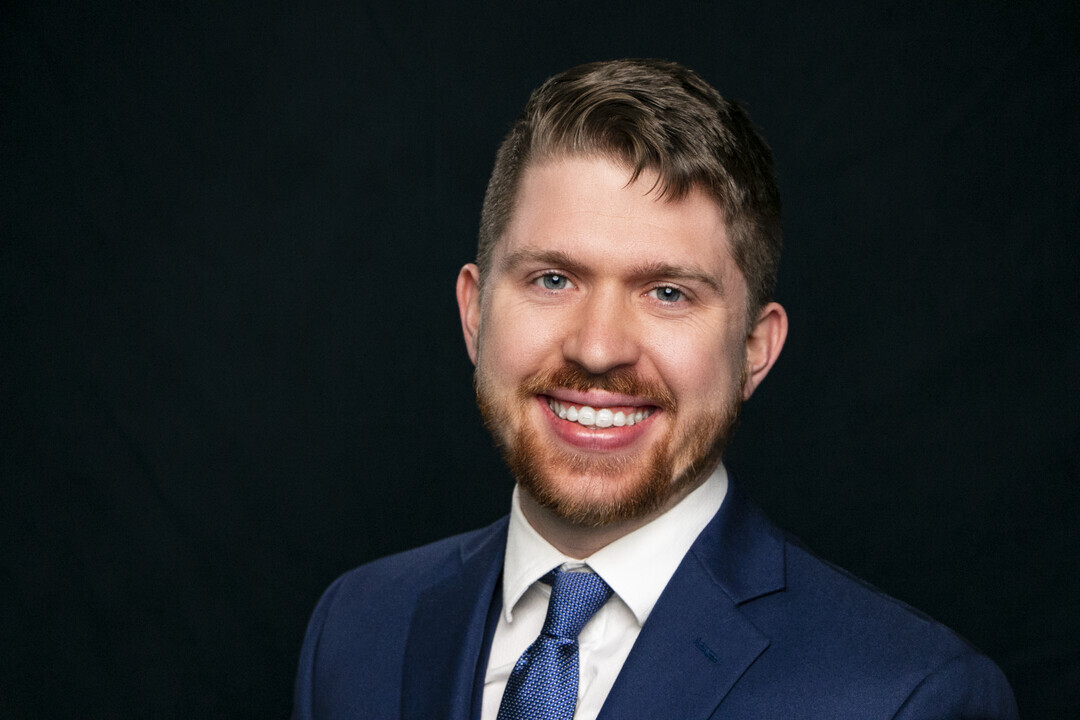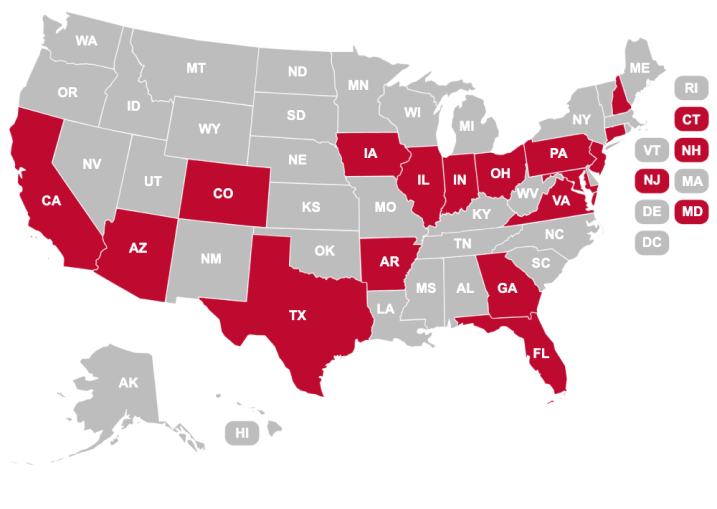401k Beneficiary – Who Can Inherit Your Retirement Account?

h2,h3
Want your loved ones to live a peaceful life even after you’re gone? If so, choose your 401k beneficiary when opening your retirement account. Most people, signing up for a 401k or any other employer-sponsored plan, are not interested in naming a beneficiary initially. However, this step can secure the future of people you love and care for. Keep reading to find out what happens to 401k when you die, who inherits it, and how!
- Naming a beneficiary for your 401k ensures that your funds are inherited by your chosen individual or entity.
- Your primary beneficiary inherits your 401k first, while contingent beneficiaries serve as backups if the primary cannot.
- Spouses can roll over funds or take lump sums, while non-spouses must follow the 10-year rule for withdrawals.
- Minor children, individuals with disabilities or chronic illnesses, and those within 10 years of the account holder’s age don’t have to follow the 10-year rule.
What is a 401k Beneficiary?
Simply put, a 401k beneficiary is a person who inherits the funds/assets in your 401k retirement account after you pass away. This person can be anyone who you name to receive your retirement income, including:
- Spouse
- Children
- Parents
- Siblings
- Friends
- Charity
- Trust
Besides, it's not necessary that you choose only one person as beneficiary; you can name multiple people. In other words, you are allowed to split your 491k inheritance between multiple people or entities. For instance, you can make 70% of funds in your 401k go to your spouse and the remaining 30% to a charity or trust.
“Employees in the United States have collectively saved or invested a total of $6.9 trillion in their 401(k) retirement savings plans. And a big chunk of this amount goes to spouse and non-spouse beneficiaries upon the death of original account holder.” – Investment Company Institute
You should also know that there are two types of beneficiaries: primary and contingent. When signing up for a 401k, you’ll be asked to name both. Let’s get into discussing who they can be:
➢ Primary Beneficiary
This refers to your first choice of who will inherit your funds after you. If you’re married, the pressumption is that your spouse will be the primary beneficiary of your 401(k). However, if you want someone else to be your primary beneficiary, you need to specify it. Also, your spouse must agree with your decision and provide a written consent.
➢ Contingent Beneficiaries
These are individuals or entities (like charities) who will inherit your 401(k) funds if your primary beneficiary is unable to do so. This could happen if the primary 401k beneficiary
a) passes away before you
b) passes away with you
c) declines to receive the amount
Contingent beneficiaries are more like a backup plan to make sure your inheritance is passed on to someone or an entity.
“If you die before receiving payments from your 401k, the right to receive them goes to your spouse by default. You have the option to choose a different beneficiary with your spouse’s consent in writing.” – U.S. Department of Labor
Undoubtedly, going through the nuances of picking a beneficiary for your retirement account can be a complicated task. You don’t have to do it alone. Instead, consult a 401k financial advisor for guidance. After all, they are well-versed in all the aspects of your 401k plan and are always ready to help you make the right decision.
What Happens to Your 401k When You Die? 401k Beneficiary Rules
As aforementioned, you need to name a 401k beneficiary or beneficiaries when you open your retirement account. This step is important as it ensures that your saved-up money is being utilized righteously. Moreover, you should know that there are some rules you need to follow when naming the person receiving funds on your behalf.
➢ If You Are Single
Those who are not married have the flexibility to name nearly any person or entity as their beneficiary for a 401k plan. Whether your parents or siblings, you can really choose anyone – even a trust. Moreover, it’s important to regularly review and update your beneficiary designations. This allows you to immediately update your beneficiary list in case the previous one dies. For example, in the case of your parents as a beneficiary. Failing to do so could result in complications or your 401(k) funds not being distributed per your wish.
➢ If You Are Married
Does spouse get a 401k after death? Yes, they do! For married 401k account holders, the spouse is presumed as the primary beneficiary. Besides, they have the right to receive all of your retirement income if you haven’t specified any beneficiary yourself. Moreover, you can pick more beneficiaries other than your wife or husband. These can receive the complete 100% or a portion of your savings if your spouse approves of it with a notarized spousal waiver. If you are the spouse of a dead 401k holder, you can use a lot of different ways to inherit your 401k. This also includes delaying RMDs until 73 (the age when they are required to take distributions from their own account too)
➢ Children as Beneficiaries
If your spouse agrees, you can also pick your children as your primary 401k beneficiary. You can also set them up as the secondary beneficiary. However, they have to be adults legally to get funds from your account. If your children are minors, they can’t inherit your 401k directly. Instead, you will have to make a trust in their name. Plus, the court will also appoint a guardian to keep a check and balance on the use of funds. Furthermore, you will need an attorney to help you to handle all this procedure for you.
What happens to your 401k if you die without beneficiary?
Whatever employer-sponsored plan you have, a 403b or a 401k, naming a beneficiary is very important. Because if you don’t you and your loved ones will have to face consequences. If you haven’t named a beneficiary, your money is likely to go to a default beneficiary – usually a spouse. Apart from spouses, your children and estate can also be your primary beneficiary. Additionally, when a single individual dies, their 401k will most likely go to the estate. You should know that if you die, your money will not go to the default beneficiary. Instead, it will go through probate first.
Probate is a legal process for settling an estate, governed by state laws. It can take years to complete and involve significant fees. During probate, assets may be frozen. Resultingly, the default beneficiary won’t be able to access the funds immediately. – Forbes
How can a Beneficiary Inherit the 401k?
There are different rules for spouse and non-spouse beneficiaries on how can access your 401k funds. Also, distribution rules are different for children who are minors, have a chronicle illness or disability, or are not more than 10 years younger than the original account holder.
➢ Inheritance Rules for Spouses
Surviving spouses – the usual choice for the primary beneficiary – usually receive the deceased person’s retirement income. Furthermore, they have four options to access the money, including:
- Take the Amount as a Lump Sum
- Roll It Over to Your 401K or IRA
- Transfer Funds to a New Inherited 401k
- Receive the Funds Regularly as RMDs
Also, keep in mind that if you are over 59 ½, the same withdrawal rules will apply to you. This means you are exempt from paying the 10% early withdrawal penalty. Need help choosing the right option to access your loved one's retirement funds? Consult professional retirement plan consultants without any delay.
➢ Inheritance Rules for Non-Spouses
Apart from your wife or husband, you can also choose a non-spousal beneficiary to receive your savings. Such beneficiaries have three above as mentioned below:
- Take the Distribution Lump Sum
- Transfer Directly into an Inherited IRA
- Withdraw money from 401k within 10 years
So, can you inherit a 401k? Absolutely, you can! However, it depends on the account holder. If they choose you to inherit their account, you can definitely access the funds in encompasses. Besides, if you are the husband or wife, you can be the default primary beneficiary.
What is the 10-Year Rule & How Does it Work?
According to this rule, the non-spousal 401k beneficiary has 10 years to utilize the funds in a 401k. Otherwise, the beneficiary will have to pay a 50% penalty on the remaining amount in the descendant’s account. This rule was implemented in 2020. Before that, the beneficiaries had more options on how to receive money as a beneficiary.
If an account owner died in 2019 or earlier, beneficiaries had two options. They could either withdraw all the money within five years or take Required Minimum Distributions (RMDs) based on their life expectancy. Undoubtedly, these options allow for more flexibility in managing the inherited account's distributions. Therefore, many experts consider the previous regulations better and more beneficial.
Exemptions of the 10-Year Rule
There are certain conditions under which non-spouse beneficiaries don’t have to follow the 10-year rule and can take Required Minimum Distributions (RMDs) based on their life expectancy. Those exempt from this rule are:
- Minor children
- Individuals with Disability
- Individuals with Chronic Illness
- 10 years younger than account holder
Although minors don’t have to follow this rule, they must withdraw all the money within 10 years after they reach the age of majority. However, this rule won’t be applicable to the rest of the above cases.
Ending Thoughts on 401k Beneficiary Rules!
Wondering what happens to my 401k if I die? Your retirement savings will go to the default beneficiary or the one that you had chosen. Moreover, the primary beneficiaries are always the husband or wife. After all, they are your companions for life. And they have the most rights over anything that was yours. Besides, choosing a beneficiary on time ensures that your money is put to good use and in the exact way you wished it to happen. So, take the right step at the right time and leave a legacy for your loved ones.










.png)
.png)
.png)

.jpg)







